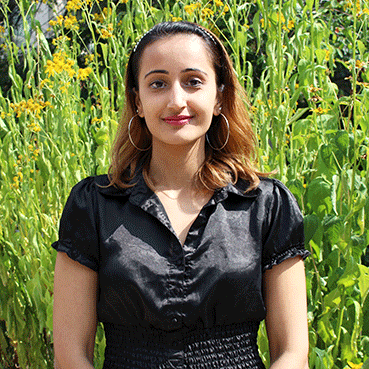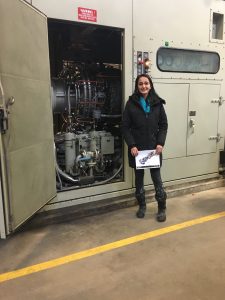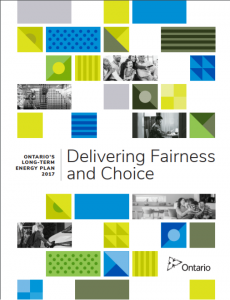 This blog is an archived post written by Sanya during her 4th year in the Environmental Politics stream
This blog is an archived post written by Sanya during her 4th year in the Environmental Politics stream
Energy is vital to the processes of our daily lives. From heating water and space to powering industrial sized tools that make the smartest machines possible today.
Securing reliable, cost-effective sources and mitigating losses is a difficult but rewarding practice. The certificate in Sustainable Energy in Environmental Studies exposes students to the basics of energy and helps gain applied skills that one will need if they wish to work in the energy sector. It covers areas relating to policy, law, economy, technology, and managerial aspects used in the field e.g. energy efficiency, conservation, demand-side management and renewable energy sources.

Me with a 5MW steam turbine, one of the two turbines
My experience in the sustainable energy certificate has been a life changing one.
Through the certificate (which I originally took because of my love for Nikola Tesla, not because I wanted to create a career in the field) exposed me to a brand new world and it is as electrifying as one might imagine. *pun very much intended*
My experience in the certificate has been very insightful. For example, just recently for my Fundamentals of Energy Efficiency class, taught by Peter Love, we visited the utilities building at York to learn about the 10MW steam turbines that helps reduce our energy bill, while conserving energy and using resources that would otherwise be considered waste.
The Faculty of Environmental Studies also hosted a Careers in the Environment: Sustainability and Energy event which took place in February.
This event was geared towards both students finishing their degrees and students in their first or second year interested in the Sustainable Energy Certificate, whom are finishing their Honours Environmental Studies degree. They went over how to apply, the requirements and courses under the certificate.
The panelists, who are graduates of either the Bachelors or Masters in Environmental Studies, work for various governmental and educational organizations and are lawyers, entrepreneurs and consultants.
Panelist and their advice:
The moderator of the event, Prof. Mark Winfield, is the certificate coordinator and he began the event with land acknowledgement followed by questions posed to the alumni.
The following is specific advice given by the alumni mentors at the event that I think was beneficial.
Andrew Plunkett (MES ‘99): Senior Public Consultation Coordinator
- In organizations, there are silos and in environmental studies there is a huge emphasis on interdisciplinary skill sets. His advice touched on the topic of cross department communication that happens in organizations and how interdisciplinary learning allows one to break down the silos to create inclusive spaces for varying ideas.
Cara Claiman (MES/JD ‘93): CEO, Plug ‘n Drive
- Her favourite aspect of the Masters in Environmental Studies program was her ability to do a self directed study. She told a story that resonated with me a lot. In law school, she told us about one time she wrote a paper on the history of environmental law, to which her peers offered their condolences thinking this was something she was being forced to do. But of course, it was because of her unwavering passion for protecting the environment. Her piece of advice was to pick what you love, regardless of what your peers are doing.
David MacMillan (MES ‘14): Community Energy Planning Consultant, contract with the City of Toronto
- As someone who studied community energy planning in Germany during his Master's at the Faculty of Environmental Studies, his advice pertains to studying abroad which at times can apply to the situation in your country or region but might not necessarily. The most important point he made was about exploring what it is you want to do and figuring out a path that will lead you to it.
Julia Zeeman (MES ‘15): Junior Sustainable Energy Consultant, ICF Canada
- She informed us on all the current policies relating to energy. She advised us to keep up with recent policies and know where the funding is currently located as this will show you areas that require work that you, as an emerging professional, can be a part of. She also offered some pragmatic advice that I know is very important and that is to never ignore studying statistics and numbers. Many operations in the energy sector are based in quantitative analysis or with other similar software's which aid in decision making.
Aaron Savati (BES ‘14): Director, Insight Energy
- He informed us about his passion for certain fields but how exploring other fields is very important. This resonated with me as I mentioned earlier I was not interested in energy originally as a career but because of my desire to explore various fields, I have found a place that I feel like I can fit in to. He also gave some practical advice of writing online and sharing what you’re passionate about through mediums such as LinkedIn, which gives you a platform and a chance to be noticed as an emerging environmental professional.
Tanya Roberts (BES ‘10): Sustainability Coordinator, Durham College
- She gave her honest perspective of working as a sustainability professional. Her insight is important as there will be times (regardless of profession) where you disagree with others but it is vital to find a balance and reach an agreement through negotiations and compromise. She suggested planning backwards: figuring out a problem that you will solve and then see the path that you need to take to effectively address it.
Tom Du (MES ‘12): Senior Financial Project Lead, Ministry of Energy
-

A report that Tom Du worked on with the Ministry of Energy
I will second his advice on debating with people. Debating is a very healthy and constructive form of learning that exposes you to new ideas while forcing you to think critically about your own. It can lead to better collaboration and gaining new perspectives. Similarly he suggested students should explore exchange programs as during his masters he studied in Germany and Denmark. You can check out the a report that Tom Du worked on with the Ministry of Energy here.
LinkedIn is an amazing resource that you can visit to see the journey of all the panelists.
For further reading there is the Sustainable Energy Initiative at York which showcases research undertaken by the above panelists, as well as, many others. There are also events that the initiative hosts that students can be part of.

